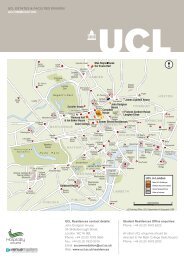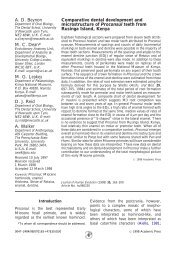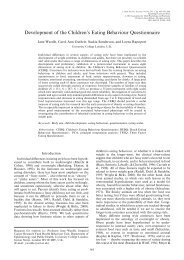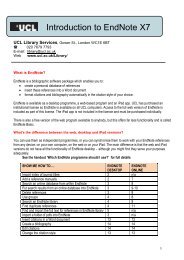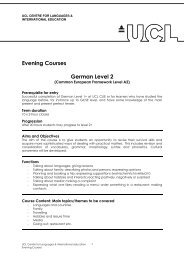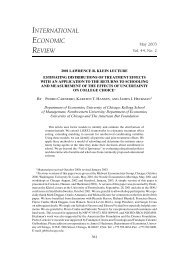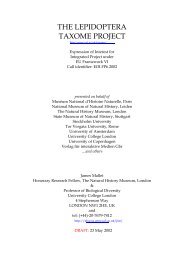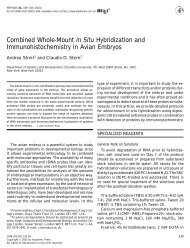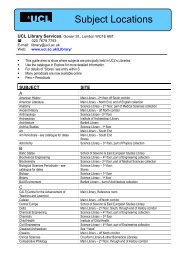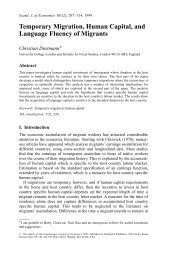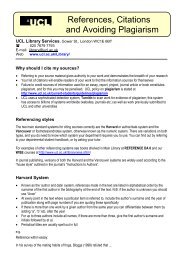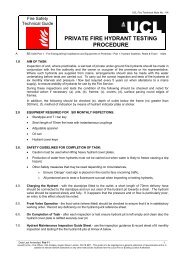Queen Square Alumnus Association - UCL
Queen Square Alumnus Association - UCL
Queen Square Alumnus Association - UCL
You also want an ePaper? Increase the reach of your titles
YUMPU automatically turns print PDFs into web optimized ePapers that Google loves.
Professor Jon Driver<br />
30 November 2011<br />
We report, with great sadness, the death on 28 November of Jon<br />
Driver, Professor of Cognitive Neuroscience, and one of the world’s<br />
leading psychologists and neuroscientists.<br />
Professor Driver was formerly Director of the <strong>UCL</strong> Institute of<br />
Cognitive Neuroscience (ICN) and from 2009 Royal Society<br />
Anniversary Research Professor, jointly at the ICN and at the<br />
Wellcome Trust Centre for Neuroimaging at <strong>Queen</strong> <strong>Square</strong>.<br />
Wellcome Trust Centre for Neuroimaging researcher awarded Lloyd’s 2011<br />
Science of Risk Prize<br />
Congratulations to <strong>UCL</strong>’s Wellcome Trust Centre for Neuroimaging Research<br />
Fellow, Klaus Wunderlich, who has won the Lloyd’s “Science of Risk” Prize in<br />
the category of Behavioural Risk. His paper was also voted “Best Overall<br />
Paper”.<br />
Wunderlich and his team at WTCN took the top prize for their research<br />
which, using Functional Magnetic Imaging (fMRI) looked at the brains of<br />
study participants as they played a simple resource management game. The<br />
researchers continually changed the parameters of the game, varying risk<br />
and reward outcomes, and thus forcing participants to revise their<br />
predictions as they played. They found that generally participants learned as<br />
they played, changing their behaviour in light of the new information, and<br />
that they were more successful when they did this, than simply by trial and<br />
error. This research, which has important implications to the insurance<br />
market, suggests that humans are better adapted to learn from experience<br />
than from studying statistical charts or graphs, which have little real-world<br />
meaning to the majority of consumers.<br />
Upon receiving the prize Wunderlich commented: "Our paper gives insight<br />
into how the brain is capable of learning structures in our environment, and<br />
how this helps us to reduce the risk in our choices. Apparently behavioural<br />
risk is a very important topic for insurance and I am delighted that our work<br />
got recognized by that industry."<br />
He was an outstanding scientist whose seminal contributions have<br />
had a huge international impact. He trained many of the world’s<br />
leading cognitive neuroscientists and was an exceptional leader. He<br />
was a Fellow of both the Academy of Medical Sciences and the<br />
British Academy, and a member of Academia Europaea. Jon’s many<br />
friends and colleagues are in shock at the news of his tragic and<br />
untimely death.<br />
<strong>UCL</strong> President & Provost Professor Malcolm Grant said, “Jon was<br />
truly outstanding, not only as a scientist but as a colleague. He gave<br />
selfless support and inspirational leadership to others. His vision and<br />
drive were central to the team that was successful in securing the<br />
Sainsbury–Wellcome Centre for Neural Circuits and Behaviour. We<br />
have lost a superb colleague.”<br />
Professor Ray Dolan said: “Jon was a dear friend and an inspirational<br />
colleague. All of us who worked with him admired his selflessness,<br />
his superb intellect and his integrity. The neuroscience community<br />
has lost an irreplaceable figure.”<br />
4



